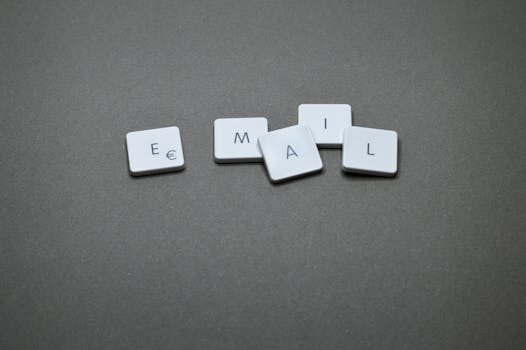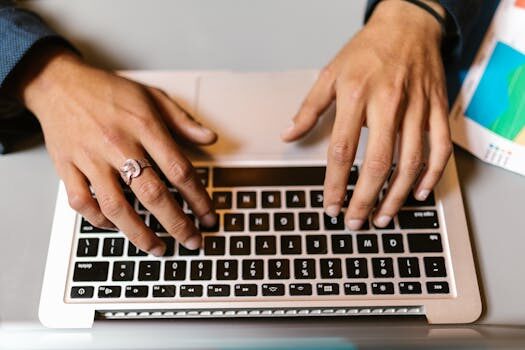Follow up emails after interview: tips and examples

Following up after an interview is a crucial step in the job application process. It not only demonstrates your professionalism but also reinforces your interest in the position. A well-crafted follow-up email can make a significant difference in keeping you at the forefront of the hiring manager's mind.
In this article, we will explore effective strategies for sending follow-up emails after interviews, including timing, content, and common pitfalls to avoid. Whether you’re a seasoned candidate or new to the job market, these tips will help you navigate your follow-up communications with confidence.
How to send a follow-up email after an interview?
Sending a follow-up email is an opportunity to express gratitude and reiterate your interest in the job. Start with a clear subject line that reflects your purpose, such as "Thank You for the Opportunity." In your email, include a brief thank you note that acknowledges the time the interviewers spent with you.
Be concise; a few paragraphs are sufficient. In the body, you can also mention something specific from the interview to personalize the message. For example, referencing a topic discussed shows you were engaged. Lastly, express your enthusiasm for the position and inquire about next steps.
Here’s an example of how you might structure your email:
- Subject: Thank You for the Interview
- Dear [Interviewer's Name],
- Thank you for the opportunity to interview for the [Job Title] position. I enjoyed our discussion about [specific topic].
- I am very excited about the possibility of joining your team and contributing to [Company Name].
- Looking forward to hearing from you regarding the next steps.
- Sincerely, [Your Name]
When should you send a follow-up email after an interview?
Timing is everything when it comes to follow-up emails. It’s generally best to send your follow-up email within 24 hours of the interview. This shows your enthusiasm and helps you remain fresh in the interviewer's memory. If you send it too late, you might miss the opportunity to make a lasting impression.

If the interviewer mentioned a timeline for feedback during your interview, it’s wise to wait until that timeframe has elapsed. However, if no specific timeline was given, a follow-up after one week is typically acceptable. This allows you to express continued interest without appearing overly eager or impatient.
What should you include in a follow-up email after an interview?
To craft effective follow-up emails, it’s important to include several key components:
- Gratitude: Start by thanking the interviewer or interviewers for their time.
- Personalization: Reference a specific conversation point from the interview.
- Interest: Reiterate your enthusiasm for the job and the company.
- Next Steps: Politely inquire about the timeline for a decision.
Including these elements can make your follow-up email stand out. It's essential to keep the tone professional and to the point, ensuring that you convey your message effectively.
How long should you wait after an interview to follow up?
As a general rule, wait no more than a week to follow up after an interview. This gives the hiring team time to evaluate candidates while still keeping you in their minds. If it has been more than a week and you haven't heard anything, it’s acceptable to send a second follow-up email. This should be similar in tone to your first email, reiterating your interest and politely asking for an update.
However, if the interviewer specified a timeline, adhere to that. Following up too soon may come off as pushy. Always respect the hiring manager's time and processes.
What are common mistakes to avoid in follow-up emails?
When crafting follow-up emails, it’s important to avoid certain pitfalls. Here are some common mistakes:

- Being Too Formal or Informal: Striking the right balance in tone is crucial. Aim for professionalism without sounding overly stiff.
- Writing Lengthy Emails: Keep your follow-up email brief. Long emails can lose the reader's interest.
- Neglecting Proofreading: Typos or grammatical errors can reflect poorly on your professionalism. Always proofread your email before hitting send.
- Coming Off as Desperate: Avoid language that conveys anxiety or desperation about the job. Maintain a confident tone.
By avoiding these mistakes, you can ensure your follow-up emails are effective and create a positive impression.
When is the best time to send a follow-up email?
Sending your follow-up email at the right time can increase the likelihood of a response. Early mornings or late afternoons during weekdays are often ideal times. Sending an email just before or after standard working hours can help ensure it’s seen promptly.
Also, consider the recipient's time zone and schedule. If you know the hiring manager's schedule, try to send your email when they are likely to be at their desk. This can enhance the chances of your email being read and appreciated.
What to do if you don’t receive a response after your follow-up?
If you don’t receive a response after your follow-up, it’s important not to panic. It’s common for hiring processes to take time, sometimes due to internal factors beyond your control. If a week has passed since your last email, you can consider sending another polite reminder.
In your second follow-up, maintain a positive tone and express understanding of their busy schedule. You might say something like, "I understand that the hiring process can take time, and I appreciate the effort involved."
Ultimately, if you still don’t receive a response after your second follow-up, it may be best to move on. Continue your job search while keeping the lines of communication open, and don't hesitate to follow up again if a suitable opportunity arises in the future.

Related questions about follow-up emails after interviews
How long should you wait after an interview to follow up?
Typically, it’s advisable to wait about a week after your interview to follow up. If the interviewer provided a specific timeline for feedback, adhere to that. Following up too soon can make you seem impatient or desperate, while waiting too long might give the impression that you are no longer interested.
How do I write an email to follow up after an interview?
When writing your follow-up email, start with a warm thank you for the interview. Mention something specific from your conversation to personalize your message. Then, express your enthusiasm for the position and inquire about next steps. Keep your email concise and professional, and don’t forget to proofread!
Is it worth sending a follow-up email after an interview?
Absolutely! Sending a follow-up email is a valuable opportunity to reinforce your interest in the position and express gratitude for the interview. It helps keep you in the hiring manager's mind and shows your professionalism. A strong follow-up can set you apart from other candidates.
How soon should I send an email after an interview?
Ideally, send your follow-up email within 24 hours of your interview. This timing helps demonstrate your enthusiasm and professionalism, ensuring you remain top of mind for the hiring team. A prompt follow-up leaves a positive impression and can boost your candidacy.